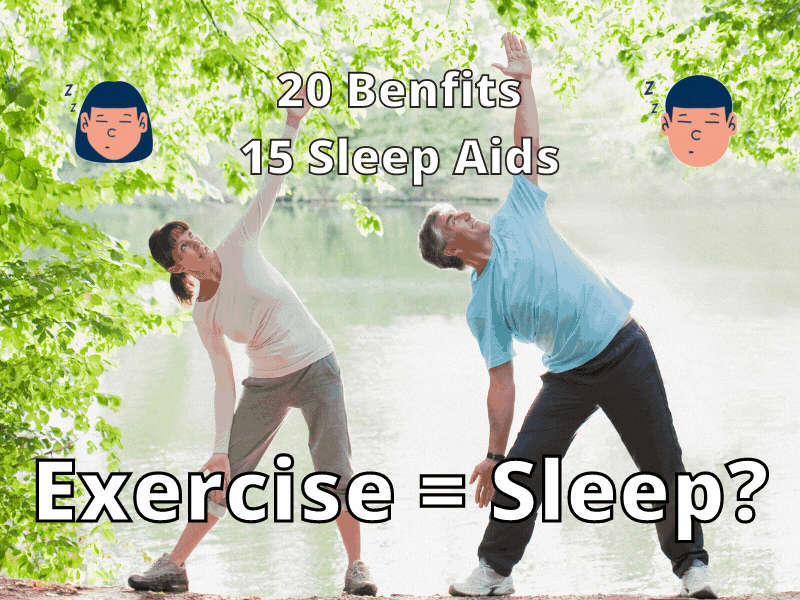When I exercise and use a lot of energy during my workout I tend to feel more tired and relaxed. If I was stressed before exercise, I tend to feel much more mellow after 30 minutes or more of exercise. I then fall asleep easier.
Exercise has been shown to promote better sleep for most people. When you exercise your body releases chemicals that help you feel more at ease. The time of day you exercise may have an impact on your sleep cycle, so listen to your body.
I’ve found that if I avoid food 3 hours before bed, I will not be wide awake after I exercise in the evening. When exercising later I tend to feel energized during my workout and then I find I relax fairly quickly when bedtime arrives. How does exercise influence
What Happens to our Bodies When We Exercise
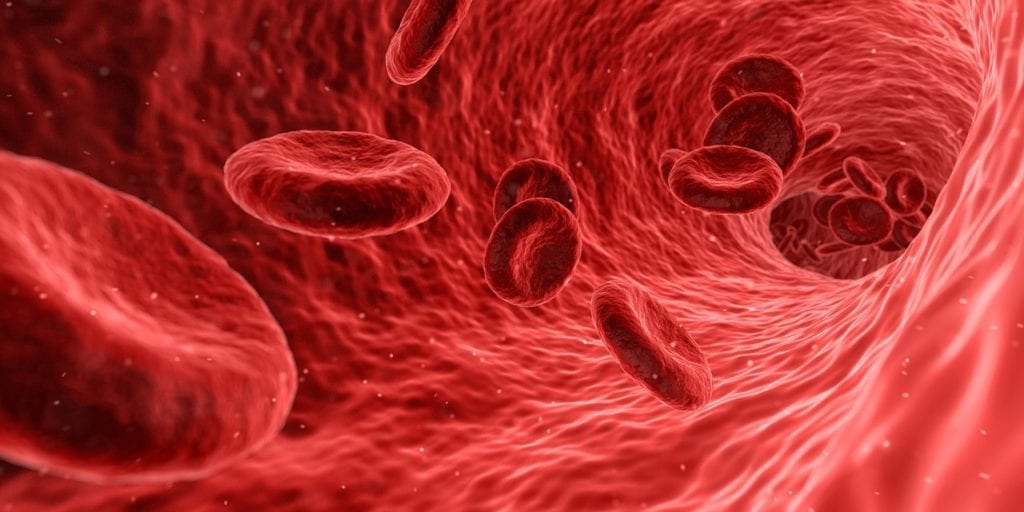
A combination of physical and biochemical processes occurs as we exercise. The amount and type of exercise can have an influence on how much change occurs.
With consistent exercise over time, your body will benefit greatly in many ways.
Here are 20 things that happen to your body as you exercise.
- Stronger Heart. Your muscles get stronger as you exercise and your heart gets bigger and stronger as well.
- Better Digestion. You will help the digestive process, it will go faster, and it will likely help with digestive issues.
- Cuts Stress Hormones. You’ll start to reduce cortisol and adrenaline when you do aerobic exercise This can help you feel more relaxed.
- Feel Good with Less Pain. You’ll release endorphins when you exercise. These hormones interact with your opiate receptors helping your mood and a reduction in pain (article).
- Burn Calories. You’ll likely start to burn fat along with the calories from the food that’s in your blood stream. The type of exercise and intensity will determine how many and where your calories come from.
- Help Your Diabetes. For those with type 2 diabetes, exercise will start to use insulin and glucose in your blood. Having too much blood sugar is unhealthy, so exercise can reduce blood sugar and keep you healthier.
- Better Blood Circulation. The more oxygen your muscle get the better they are able to function and exercise. As your blood circulates during exercise it helps bring nutrients and eliminate waste better. You’re more likely to avoid high blood pressure and heart disease as you exercise regularly.
- New Capillaries. The more you exercise, additional capillaries will start to grow to bring blood to your muscles. Then your muscles can function better.
- Stronger and Faster. If you’re consistent over a year with your exercise routine, you’ll find that your muscles will tone more, your VO2 max (the maximum oxygen intake) will be higher and allow the blood flow to your muscle to help you exercise faster and longer, and your bones will get denser.
- Bigger Brain. Your brain will change and the memory and learning area will get bigger over time. This means that your cognitive ability will function a bit better with regular exercise.
- Mitochondria. After only about 8 weeks of exercise, your levels of mitochondria (the part of the cell that helps burn carbs, fat, and protein to fuel your muscles) can increase by about 50%. This should help you exercise easier than at the beginning.
- Testosterone and Estrogen. For men, your levels of testosterone will increase aiding in building muscles and bones. For women, estrogen is produced and can help with fertility, sleep, and hot flashes.
- 5 Minute Rule. People will usually begin to feel better after just five minutes of exercise. If you’re depressed, just five minutes of exercise or just getting moving (article) may begin to help alleviate some depression. Regular exercise for those struggling with depression can start helping within a few weeks. The brain and body will need some time to make changes.
- Muscle Tears. When you exercise, you tear muscle tissue. This is normal and helps you adapt. It helps your muscles grow stronger after they are repaired. Your muscle may be sore up to 72 hours, but if you exercise the same muscles regularly you’ll likely feel less soreness than before.
- Lung Capacity. As you exercise and push yourself a bit more your lung capacity will increase. Your lungs will get more capable of delivering oxygen to your body.
- Healthier Skin. Getting the blood flowing to your skin during exercise will help deliver nutrients and eliminate waste. You may find that your skin looks more radiant as you exercise often. You’ll also start to produce more collagen for healthy younger looking skin.
- Immune Function. As you exercise you’re helping the different body parts get more blood. Your increased blood flow will help your lymph nodes keep healthy and your white blood count will increase. Your body may then be able to fight off illness a bit better.
- Joint Health. Your joints (article) need nutrients delivered to maintain healthy tissues. Exercise helps produce synovial fluid. This fluid helps keep your joints moving smoothly and provide the nutrients for your joints.
- Weight loss? While exercise may not be the solution for weight loss, it is a key component for maintaining a healthy body. When we exercise our bodies burn energy but not quite enough to help lose a lot of weight. It can help increase muscle mass and with more muscles an increased metabolism, so you’ll burn more calories even when not exercising. With a healthy diet, exercise, and more muscles, you’ll likely start to lose weight.
- Energy Boost. It may not come for a while, but with regular exercise, your body will start to feel more energetic throughout the day. I’ve found that a regular exercise program was not helpful with boosting my energy until the second month in.
Why Can’t I sleep?

If your body isn’t ready to sleep, you’re likely not going to be able to sleep without taking some preventative measures. Medicine can help but can also become addictive or create dependency on the drug.
You can change how you get ready for sleep to make it easier on your body. The chemicals released by your body before sleep can have an impact on how sleepy you feel and if you can sleep through the night.
What Can I do? Here are 15 things to do to help with sleep.
- No Food Please. Try giving your body a chance to slow down. Stop eating three hours before bedtime. If your stomach isn’t digesting, it will be able to give you more restful sleep during the night.
- Caffeine. Avoiding caffeine will help your body sleep faster and with fewer disruptions from brain activity and bathroom use. Try avoiding between 6-9 hours before bed, depending on your bodies reaction to caffeine.
- Protein Maybe. Eating protein can also inhibit sleep because “Eating a high-protein meal without accompanying carbohydrates may keep you awake since protein-rich foods also contain the amino acid, tyrosine, which perks up the brain.” (5) Protein can also inhibit the production of serotonin, so you don’t feel as calm.
- Tea. Make sure you find a non-caffeine tea like chamomile to help you feel calmer. “Chamomile is widely regarded as a mild tranquilizer and sleep-inducer. Sedative effects may be due to the flavonoid, apigenin that binds to benzodiazepine receptors in the brain” (6)
- Exercise. If you have been sitting most of the day, your body will likely need to exercise a bit to feel more relaxed. Get out to walk the dog or do something very active (article) a couple of hours before bed.
- Eat Up. Eating different food for dinner may aid in sleep. Cherries have melatonin, fish have vitamin D and omega 3 fatty acids, foods with tryptophan like whole grains and rice can help, zinc from whole grains and nuts, yogurt has calcium, and hummus with bread can also be beneficial because carbohydrates help with relaxation. Avoid too much protein, but dinner with protein and higher carbs should work to help with restful sleep. Consider eating fruits like bananas (potassium and magnesium), watermelon (magnesium) and kiwi (melatonin) too.
- Turn It Off. When we can avoid TV and other devices a few hours before bed, including our phones, then we can produce melatonin to help us sleep. To much blue light can stimulate our brains, so we stay awake longer.
- Room Temperature. Create a comfortable environment in your room. Higher heat levels can keep you from a restful sleep. If it’s too cold even under the covers, turn up the heat so your body can rest easy.
- Fasting. “Some studies suggest that periodic, short-term fasting can improve sleep.” (7) Fasting can have a wide variety of health benefits, and giving your body time to rest is worth it.
- Get Some Head Space. Whether it’s taking a bath or meditation (article), clearing your head can help you feel more at ease. Journaling helps many people get their thoughts out and leave their worries for another day.
- Routine, Routine, Routine. I know how difficult it is for me to stick with a sleep routine when life happens, but it’s one of the best ways to work with your body. Everyone has an internal clock, and it signals your body to sleep and wake up. So keeping a consistent sleep schedule will help your internal clock run smoothly.
- Take a Power Nap Instead. Resting for 20 minutes during the afternoon can help you get a boost in energy for the rest of the workday. But sleeping during the day can throw off your sleep patterns. You’ll likely stay up later and sleep less.
- Turn It Up. Listening to relaxing music can help you get in a restful state of mind. 15-30 minutes before you sleep put on some music that helps you feel calm and relaxed. You can brush your teeth and finish other tasks while winding down for the day.
- Get Comfy. If your bed and pillows are not suitable for restful sleep, decide what needs to be done to create a healthy and comfortable sleeping environment. Generally, you’ll want a mattress that is supportive enough for your body to help with proper spine alignment without excess pressure on any body part. Having a supportive pillow that helps align your neck is also helpful.
- Read a Book. If you can’t sleep, find a calming book to read.
(Amazon Link) It can’t be too interesting, or you might feel the need to read more and more. You can get up and find a physical book and read until you feel drowsy. Avoid bright screens from phones or tablets.
How Exercise Helps With Sleep?

When you exercise, you’re preparing your body chemically. Exercise can release endorphins that help regulate mood. There’s also a reduction in stress hormones. So you end up feeling less stressed and in a better mood.
Exercise helps by affecting how long we are in deep sleep. It seems to trigger longer periods of deep sleep, which helps people have a better sleep experience.
When you exercise you’re raising your core body temperature. Then your body temperature will drop back to normal. This rise and fall in body temperature act as signals to your body. A higher temperature would normally signal its time for waking up and a cooler temperature signals it’s time to sleep. (Amazon Link)
According to one study “Regular exercise has small beneficial effects on total sleep time and sleep efficiency, small-to-medium beneficial effects on sleep onset latency, and moderate beneficial effects on sleep quality.” (8)
Another study shows that if your someone with chronic insomnia, exercise can have a significant effect on your sleep. (9)
Researchers are still not sure about all of the reasons why exercise helps people sleep, but in one study it was found that exercising consistently over
Over time you’ll find that you will sleep longer and have a more restful sleep as you exercise regularly. You’ll find that feeling stress will be less, and your mood will improve.
Even if you don’t see the effects of sleep improvement right away, exercise can start changing your body and mind in
Remember that you can exercise at any time of the day, but I would recommend doing it about two hours before bed, especially if you’ve had anything to eat. Eating and exercise tend to wake me up, instead of helping me relax. Don’t forget to have fun with
What Types of Exercise Help You Sleep the Best
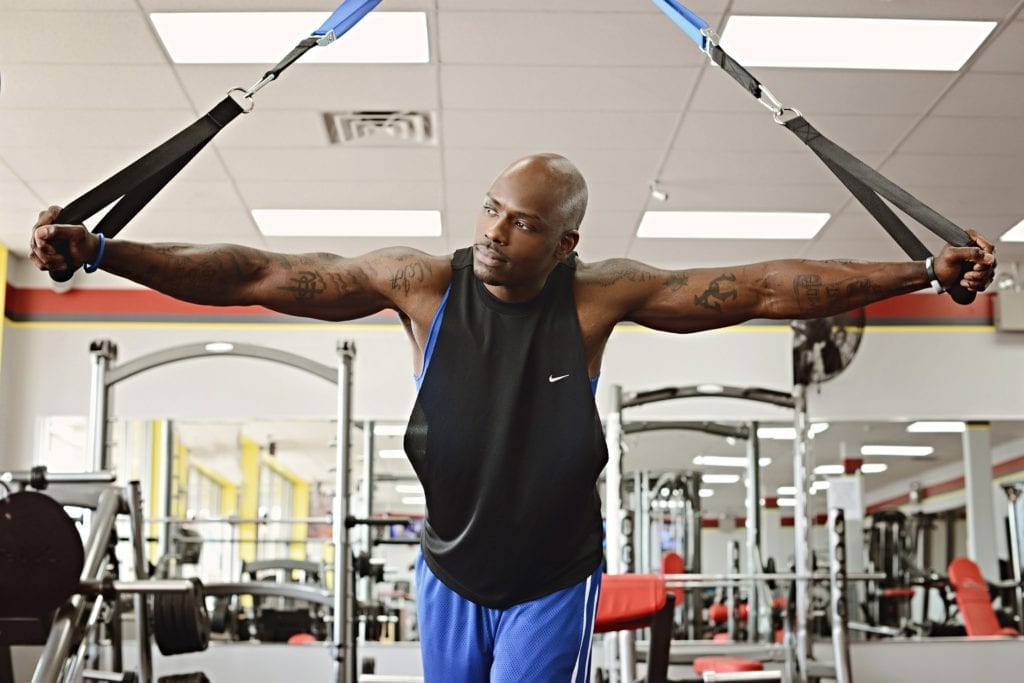
There is not a specific exercise that’s best for sleep, but it should include some of the following elements.
When you exercise, try for about 150 minutes each week or 30 minutes each day for 5 days. With regular exercise, your body will get into rhythms that will influence sleep patterns.
Try to make yourself exercise enough to raise your core body temperature. If you can exercise at the same time each day, this will also signal to your body about your sleep patterns.
It doesn’t matter what time of day you exercise (article) in order to have positive
“Those who pump iron in the a.m. tend to fall asleep faster than those who work out later in the day. And those who prefer to do their bench presses or bicep curls at night wake up less frequently during the night and sleep better overall, compared with people who work out earlier in the day. ” (11)
I try (article) to exercise about five times a week but have difficulty keeping a consistent schedule of what time during the day I exercise. I have found that I tend to feel just about the same when bedtime arrives, regardless of when I exercised.
Why Do I Need Sleep?

The body does a number of tasks while we sleep. These tasks help us physically and psychologically.
While getting 8 hours is sleep for some may work just fine, you don’t need to force yourself to conform to a schedule. Less sleep is usually required for adults and more for teens and children.
My Experience
I found out, through getting tested during a sleep study, that I have sleep apnea. I would feel tired even after an average of seven hours of sleep. I would get tired quickly, get frustrated more easily, and be mentally drained at the end of the day.
I wonder what was wrong until I went through the sleep study and found that my sleep was being interrupted repeatedly through the night. I wasn’t able to get enough deep sleep. My sleep cycles were cut short.
Sleep Cycle
We all need to cycle through deep and light sleep during the night. Adults need about 4-5 sleep cycles that usually last around 90 minutes, to get a good night’s rest.
During the time after my sleep
I thought I was sleeping way too long. I also tried using an app to monitor my sleep. Some people use their phones or smartwatch. (Amazon Link) After using it for a couple of weeks, it indicated that I needed about nine hours of sleep like my body was already telling me.
I was surprised. I wasn’t used to that kind of schedule, but when I started to follow a 9-hour sleep schedule I felt like a new person. I wasn’t cranky anymore. I had energy and was able to get a lot more done, because I had more energy, even during the evening hours.
Here are 20 reasons to get a good night sleep.
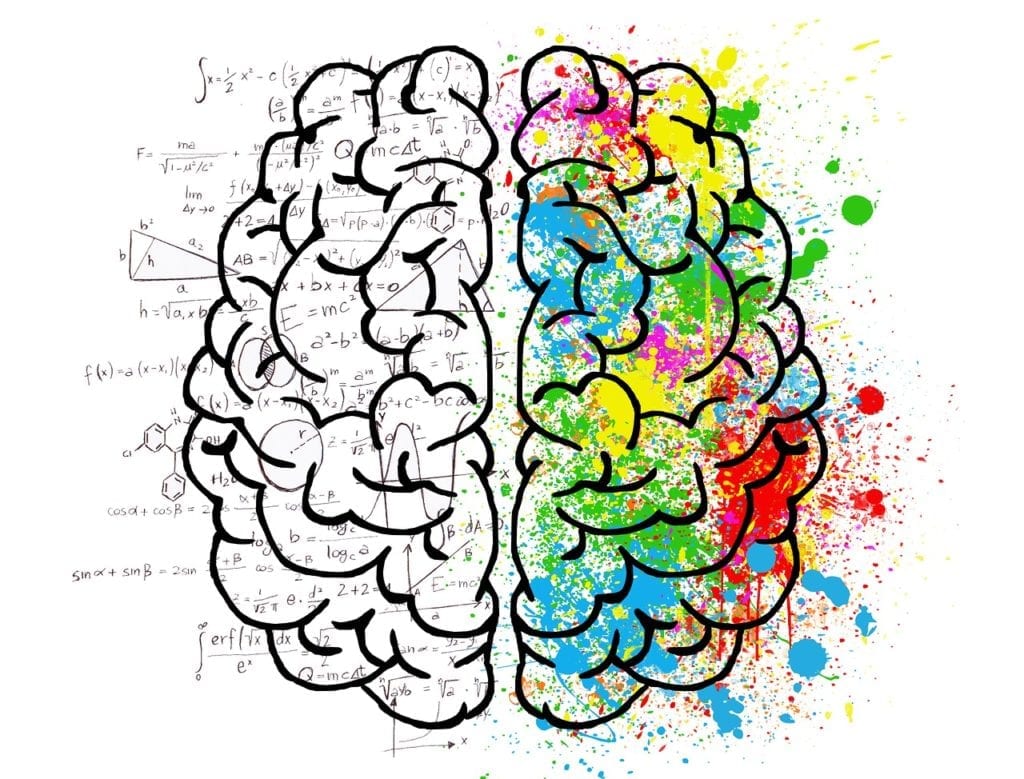
When you’re able to sleep you’re able to reap the benefits in many ways.
- Store Memories. Your brain is working while you sleep. Your new and old memories will be more firmly imprinted in your brain and you’ll be able to store them better with a better nights sleep.
- More Creativity. You’ll have a better ability to be creative. Need to think of ideas for tomorrows activity, get a good night rest and those ideas will come a bit easier.
- Cleaning Up the Toxins. During sleep, your brain has time clear out any toxins that may have been created during the day. More cleaning may mean better neurological brain functioning.
- Be Faster and More Accurate. Your brain can work can function better on a good nights sleep. If you’re a student you’ll have to advantage of doing a faster and more accurate job, versus peers with the same knowledge but less good sleep.
- Be Healthier. You’ll likely get in more exercise and eat less junk food. When you sleep well, you feel up to getting exercising and getting things done. Sitting around being tired adds on the pounds quickly, since we are likely to eat more food and it’s likely to be comfort foods.
- Your Appetite is Better Regulated and You Could Possibly Lose Weight. “When sleep is restricted to four hours a night, ghrelin levels go up and leptin levels go down,” says National Sleep Foundation spokesperson William Orr,
PhD , presidentand CEO of the Lynn Health Science Institute in Oklahoma City. “So you have a greater amount of appetite and a greater amount of intake.” (2) - Physical Tasks Become Easier. Sure, if you do something over and over, you’ll get better at it, but sleep formats the neurological system better when you sleep well. You’ll be dancing your new dance moves in no time.
- Make Repairs. When you sleep your body can repair itself. Your brain will release hormones during sleep that aid in building tissues that need repair. That means you’ll likely recover from injury or exercise faster as you sleep.
- Fight Infection. Your body will start to make more white blood cells during sleep allowing you to recover from sickness or not get sick in the first place.
- Feel Good. You’ll feel emotionally better when you get enough sleep. Your brain may be depleted of the chemicals needed to help you feel happy if you haven’t slept enough. Getting enough sleep helps you feel better.
- A Healthy Heart. Less stress will help you get a good nights sleep and your heart will thank you for it. The heart needs rest to reduce the stress that’s placed on it during the day. Not enough sleep causes more stress on the heart, over time leading toward heart disease.
- Stop Cancer Before It Starts. Along with reducing stress, sleep can keep the body functioning at it’s best. Melatonin is released during sleep and helps by having an antioxidant effect on cells, which could stop cancer from occurring.
- More Intimacy. For men who lack sleep, lower level of testosterone is produced, in turn reducing their sex drive. Having sex can help you sleep better because of the release of oxytocin and more sleep will, in turn, increase sex drive.
- Be More Fertile. “Leptin is a hormone that links sleep and fertility. It affects ovulation, in order for leptin to be produced adequately, women need to get enough sleep. If women are not getting enough sleep, their menstrual cycle may be disrupted. Some other fertility hormones affected by sleep include progesterone, estrogen, LH (luteinizing hormone) and FSH (follicle-stimulating hormone).” (3)
- Diabetes Blocker. While sleep won’t stop diabetes, there is a link between less sleep and higher blood sugar levels. Specifically, if you have sleep apnea, you’ll have a higher risk of diabetes. If you get more sleep, your less likely to develop pre-diabetic issues. It comes down to eating healthy and sleeping well.
- Reduce Inflammation. With more sleep the amount of inflammation reduces. The “pro-inflammatory cytokines are enhanced in the brain with sleep loss.” (1)
- Beautiful Skin and Hair. Sleep can help clear up the skin, get more collagen for fewer wrinkles, and reduce puffy eyes. Your hair follicles will get more blood flow for healthier hair and less hair loss.
- Grow Taller. For those still under 18 years old, sleep is important for proper development and growth of the body. During sleep, the hormone for growth is released, so lack of sleep could reduce hormone release and growth.
- Be a Top Athlete. Studies show that athletes in several different sports who slept about 10 hours a night for 7-8 weeks were able to be better at sprinting and more energy throughout the day. (4)
- Live Longer. How long do you want to live? If you want to live longer, make sure you’re getting the right amount of sleep for your age. Not enough sleep is associated with a reduced life span.
Sleep By the Numbers
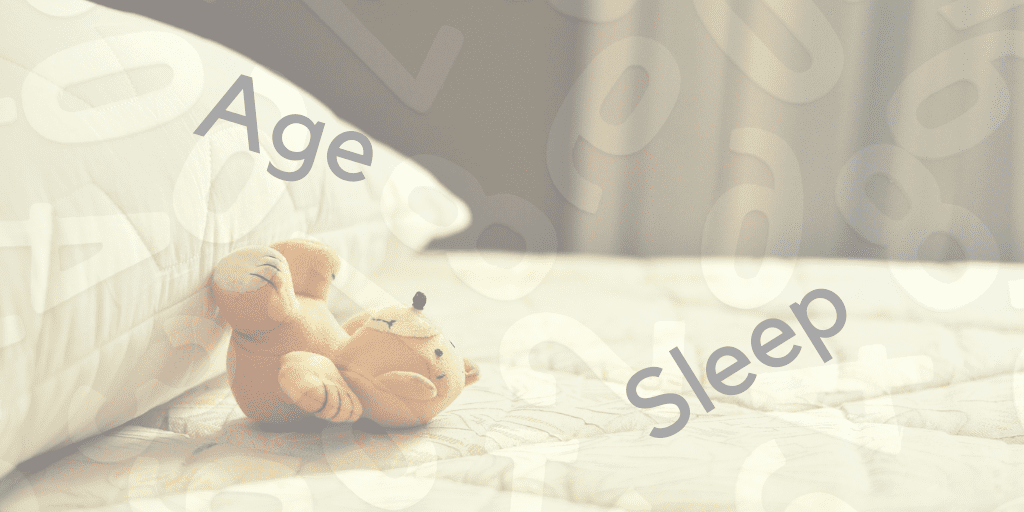
Our bodies run on an internal clock, whether we want them to or not. I tend to feel tired and know that my body is ready for sleep, but I want to stay up and finish watching the show that I started.
Unfortunately for me, my body doesn’t care about the show, it knows what it needs, and will function better if I pay attention to its needs.
You’ve heard that in general people need eight hours of sleep. That sounds like a good amount of sleep, right? Wrong. Everyone is different and has different needs.
According to the National Sleep Foundation, we all need a different amount of sleep to function at our best. And those of the same age may also have different sleep needs, so it’s a sliding scale base on individual needs.
The amount of sleep each person needs depends on many variables, but we can each find out the best number for us through a little trial and error.
Determine how you feel after sleeping at least the minimum for your age range. If you consistently feel awake and well-rested, then your body is getting the sleep it needs.
Don’t forget to get some help if you need it. (Amazon Link) A doctor can diagnose sleep issues you may have. I never knew I had sleep apnea until my doctor asked me to do a sleep study.
I have also used the app Sleep Cycle (App) to monitor how I sleep at night. It has graphs that show my sleep patterns and gives me insight into how restful my sleep was.
| Age Range | Number of Hours of Sleep Needed |
| New Born (0-3 Months) | 14-17 Hours |
| Infant (4-11 Months) | 12-15 Hours |
| Toddler (1-2 Years) | 12-15 Hours |
| Toddler (3-5 Years) | 10-13 Hours |
| School Age (6-13 Years) | 9-11 Hours |
| Teenager (14-17 Years) | 8-10 Hours |
| Young Adult (18-25 Years) | 7-9 Hours |
| Adult (26-64 Years) | 7-9 Hours |
| Older Adult (65+ Years) | 7-8 Hours |
Thanks for visiting Helpshoe.com
Related Questions
Can I exercise to lose weight?
Exercise can contribute to weight loss but isn’t sufficient to help one lose weight by itself. As you exercise you’ll be burning calories, but the food you eat may have more calories than exercise can offset. Diet and your metabolism will also play a key factor in your weight
Can exercise relieve pain?
Exercise helps produce endorphins that can contribute to an overall sense of well-being and some pain reduction. The real reduction in pain comes from physical therapy and related exercises that help strengthen and repair the areas of the body that need it. Consult a professional before starting.

